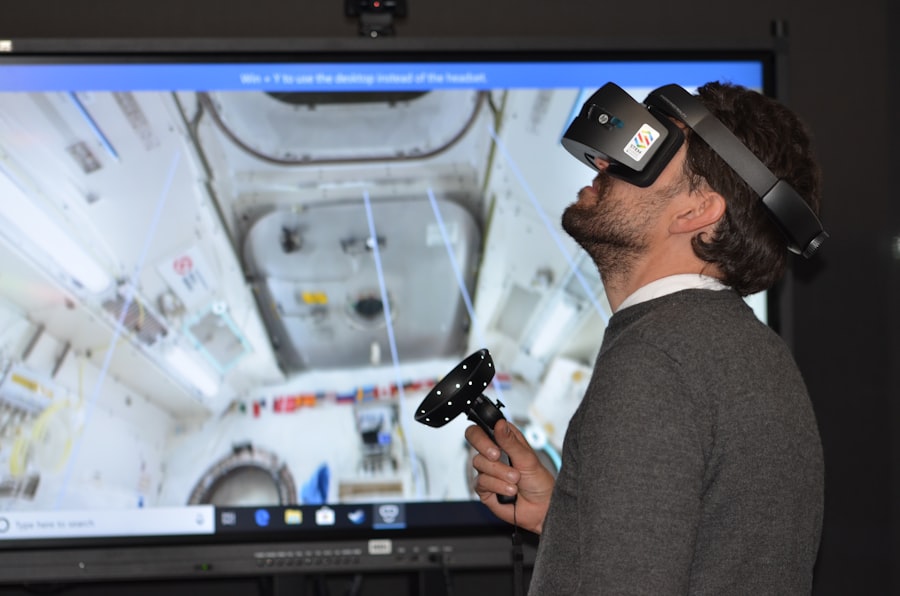Martin Heidegger, a pivotal figure in 20th-century philosophy, is best known for his profound exploration of existence, being, and the nature of reality. His seminal work, “Being and Time,” delves into the concept of “Dasein,” which translates to “being-there,” emphasizing the importance of human experience and the context in which it unfolds. Heidegger’s philosophy challenges traditional metaphysical views, urging a return to the fundamental questions of what it means to be.
He posits that our understanding of existence is deeply intertwined with our historical and cultural contexts, leading to a rich tapestry of interpretations that shape our perception of reality. Heidegger’s thought is characterized by a distinctive style that often intertwines poetic language with rigorous analysis. He invites readers to reconsider their relationship with the world, urging them to move beyond mere intellectual abstraction and engage with the lived experience.
This approach has made his work both influential and controversial, as it raises critical questions about technology, modernity, and the essence of being itself. As we navigate the complexities of contemporary life, Heidegger’s insights remain relevant, particularly in light of the rapid advancements in technology and the emergence of virtual realities that challenge our understanding of existence.
Key Takeaways
- Martin Heidegger’s philosophy emphasizes the importance of understanding being and existence in the world.
- Heidegger’s perspective on technology and virtual reality focuses on the concept of “technological enframing” and its impact on human existence.
- The Metaverse is seen as a form of technological enframing that shapes human experience and understanding of reality.
- According to Heidegger, the Metaverse has positive aspects such as potential for creativity and connection, but also negative aspects like alienation and loss of authenticity.
- Heidegger critiques virtual reality for its potential to distract individuals from authentic being and the importance of being-in-the-world in the Metaverse is a key aspect of Heidegger’s philosophy.
Heidegger’s Perspective on Technology and Virtual Reality
The Enframing of Modern Technology
In his essay “The Question Concerning Technology,” Heidegger argues that modern technology represents a mode of revealing that transforms the world into a resource to be exploited. This “enframing” reduces nature and human beings to mere objects, stripping away their intrinsic value and interconnectedness.
The Disconnection from Authentic Existence
For Heidegger, this technological mindset leads to a disconnection from authentic existence, as individuals become increasingly alienated from their surroundings and from each other. In the context of virtual reality, Heidegger’s critique becomes even more pertinent. Virtual environments can be seen as extensions of technological enframing, where experiences are mediated through screens and digital interfaces.
Questioning Authenticity in a Digital Age
This raises significant questions about authenticity and the nature of being in a world where reality can be simulated or manipulated. As individuals immerse themselves in virtual spaces, they may find themselves grappling with the implications of these experiences on their understanding of self and existence. Heidegger’s philosophy encourages us to reflect on how technology shapes our perceptions and interactions, urging a deeper inquiry into what it means to be human in an increasingly digital age.
The Metaverse as a Technological Enframing

The concept of the Metaverse—a collective virtual shared space created by the convergence of virtually enhanced physical reality and physically persistent virtual reality—can be understood through Heidegger’s lens of technological enframing. In this expansive digital realm, users engage with immersive environments that blur the lines between reality and simulation. The Metaverse exemplifies Heidegger’s concerns about technology’s capacity to reshape our understanding of being by presenting a world that is constructed rather than experienced in its raw form.
In the Metaverse, individuals often adopt avatars that represent them in these digital landscapes, further complicating their sense of identity and presence. This phenomenon echoes Heidegger’s notion of “thrownness,” where individuals find themselves situated within a context that influences their existence. The Metaverse can be seen as a hyper-real environment where the authentic self may become obscured by curated identities and experiences.
As users navigate this digital terrain, they may inadvertently participate in a form of enframing that prioritizes superficial interactions over genuine connections, raising critical questions about the implications for human relationships and self-understanding.
Positive Aspects of the Metaverse According to Heidegger
Despite his critiques, Heidegger’s philosophy also allows for a nuanced exploration of the potential positive aspects of the Metaverse. One could argue that virtual environments offer new avenues for creativity and self-expression, enabling individuals to explore identities and experiences that may be inaccessible in the physical world. The Metaverse can serve as a platform for artistic innovation, collaboration, and community-building, fostering connections among diverse individuals across geographical boundaries.
Moreover, the Metaverse has the potential to democratize access to information and experiences. In a world where physical limitations can hinder participation, virtual spaces can provide opportunities for engagement that transcend traditional barriers. For instance, individuals with disabilities may find new ways to interact with others and participate in activities that would otherwise be challenging in real life.
From this perspective, Heidegger’s emphasis on being-in-the-world can be reinterpreted to include these digital realms as legitimate spaces for human experience, provided they are approached with mindfulness and intentionality.
Negative Aspects of the Metaverse According to Heidegger
Conversely, Heidegger’s philosophy also highlights significant negative aspects of the Metaverse that warrant careful consideration. One major concern is the potential for alienation that arises from excessive immersion in virtual environments. As individuals become increasingly absorbed in digital interactions, they may lose touch with their authentic selves and the richness of lived experience.
This disconnection can lead to a sense of emptiness or existential crisis, as users grapple with the disparity between their virtual personas and their real-world identities. Additionally, the Metaverse can exacerbate existing social inequalities by creating hierarchies based on access to technology and digital literacy. Those who are unable or unwilling to engage with these virtual spaces may find themselves marginalized or excluded from important social interactions and opportunities.
Heidegger’s critique of enframing serves as a cautionary reminder that while technology can enhance our lives, it can also entrap us in a cycle of consumption and superficiality that detracts from authentic existence. The challenge lies in navigating these complexities while remaining grounded in our humanity.
Heidegger’s Critique of Virtual Reality and Authentic Being

Heidegger’s critique extends beyond mere technological concerns; it delves into the very essence of what it means to be authentically human in an age dominated by virtual realities. He posits that authentic being is rooted in our ability to engage meaningfully with the world around us—an engagement that is often compromised in virtual environments. The allure of escapism offered by virtual realities can lead individuals to prioritize simulated experiences over genuine interactions with others and their surroundings.
In this context, Heidegger would likely argue that virtual reality risks fostering a superficial understanding of existence, where individuals become spectators rather than active participants in their lives. The danger lies in losing sight of our interconnectedness with others and the world itself—a theme central to Heidegger’s philosophy. As we navigate the complexities of virtual existence, it becomes imperative to cultivate awareness of how these experiences shape our understanding of self and being.
The Role of Being-in-the-World in the Metaverse
Heidegger’s concept of “being-in-the-world” emphasizes the importance of our situatedness within a specific context—an idea that resonates deeply within the framework of the Metaverse. In this digital landscape, users are not merely passive observers; they actively construct their experiences through interactions with others and their environment.
The challenge lies in balancing participation in the Metaverse with an awareness of its limitations. While virtual spaces can offer opportunities for exploration and connection, they should not replace or diminish our engagement with the physical world. Heidegger’s philosophy encourages us to reflect on how we inhabit these digital realms—inviting us to consider whether our interactions contribute to a deeper understanding of ourselves and our relationships or whether they merely serve as distractions from authentic existence.
Heidegger’s Insights on the Metaverse
In conclusion, Martin Heidegger’s philosophy provides a rich framework for examining the complexities of the Metaverse and its implications for human existence. His critiques of technology and enframing challenge us to reflect on how virtual realities shape our understanding of self and being. While there are positive aspects to consider—such as opportunities for creativity and connection—there are also significant risks associated with alienation and superficiality.
As we navigate this evolving landscape, it is essential to remain grounded in our humanity and cultivate an awareness of how our digital experiences influence our relationships with ourselves and others. By engaging thoughtfully with the Metaverse through a Heideggerian lens, we can strive for a more authentic existence that honors both our digital explorations and our lived experiences in the physical world.
If we were to ask Martin Heidegger about the metaverse in an interview, he would likely delve into the philosophical implications of virtual reality and its impact on human existence. In a related article on metaversum.it, the positive and negative aspects of virtual reality are explored, shedding light on how it can enhance human experiences while also raising concerns about its potential to disconnect individuals from reality. Heidegger may argue that the metaverse offers new possibilities for human interaction and exploration, but also caution against losing touch with the authentic world and the essence of being. This perspective aligns with his philosophical views on technology and its effects on humanity, making his insights invaluable in understanding the metaverse’s implications.
FAQs
Who is Martin Heidegger?
Martin Heidegger was a German philosopher known for his existential and phenomenological approach to philosophy. He is considered one of the most influential philosophers of the 20th century.
What is the metaverse?
The metaverse is a collective virtual shared space, created by the convergence of virtually enhanced physical reality and physically persistent virtual reality. It is a concept that has gained popularity in recent years with the advancement of virtual reality and augmented reality technologies.
What would Martin Heidegger say about the metaverse?
Martin Heidegger might approach the metaverse from the perspective of technology’s impact on human existence. He might explore how the metaverse affects our understanding of being and reality, and how it shapes our experience of the world.
What positive aspects of the metaverse might Martin Heidegger acknowledge?
Heidegger might acknowledge the potential for the metaverse to expand human experience and provide new ways of interacting with the world. He might also see it as a space for creativity and exploration.
What negative aspects of the metaverse might Martin Heidegger point out?
Heidegger might express concerns about the potential for the metaverse to further distance humans from authentic experiences and relationships. He might also critique the way in which the metaverse could contribute to the commodification of human existence.











Leave a Reply